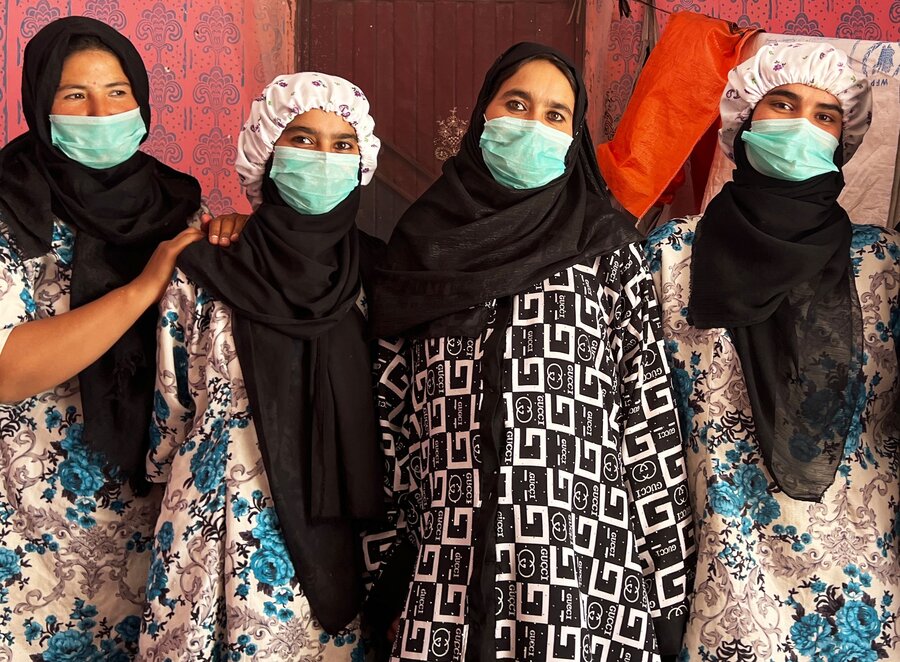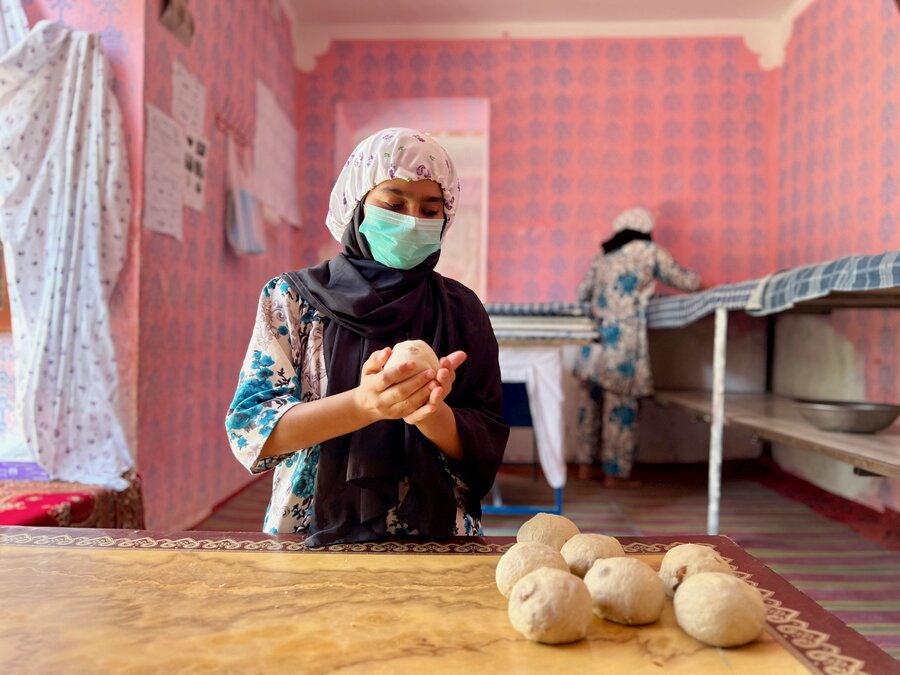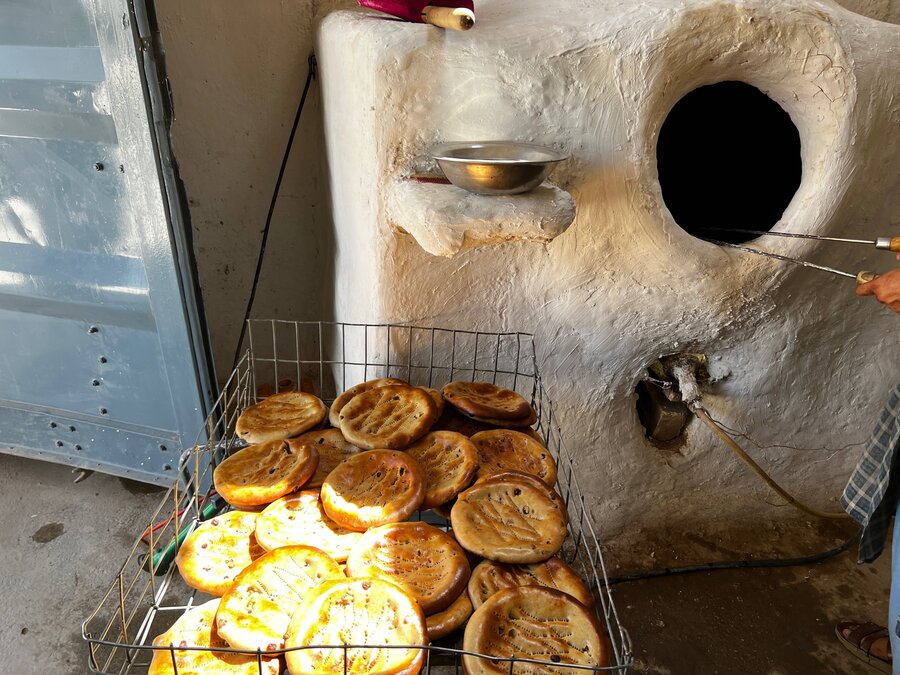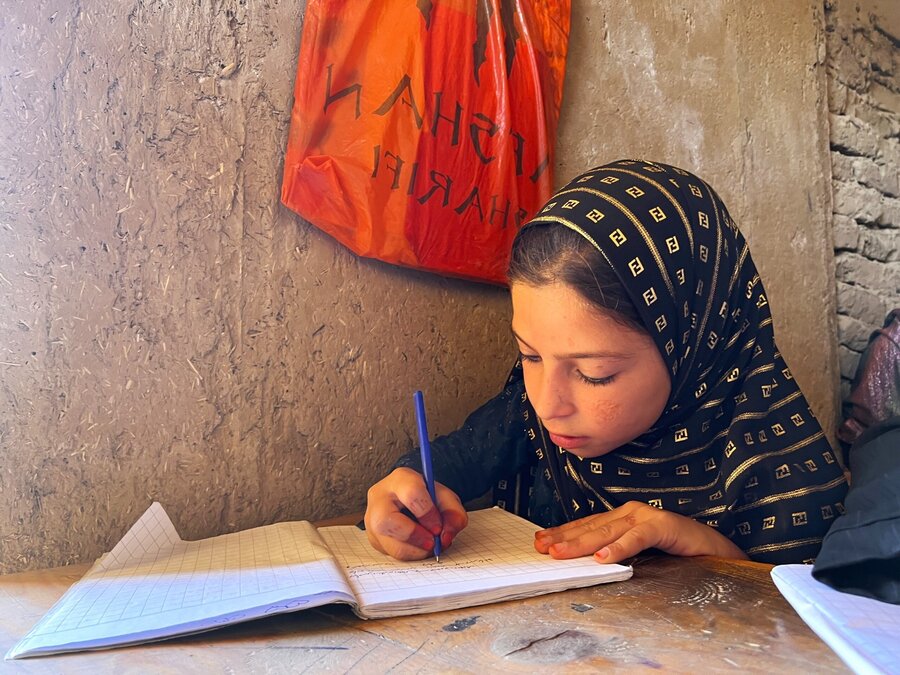Despite restrictions on women, a bakery blossoms in hungry Afghanistan

The call to prayer from a neighbouring mosque wakes Bibi Sharifa and her four sisters at first light. They share a modest breakfast of naan, the traditional flatbread, and fragrant green tea. Then they settle into work, at a bakery nestled in the heart of their living room.
In most countries, such a scene might appear unremarkable. But this one unfolds in Afghanistan, a country where women are barred from education beyond primary school, and are increasingly excluded from the workforce and much of public life. Yet Sharifa and her siblings have not only managed to survive, but their business is booming, thanks to World Food Programme (WFP) support and a contract to deliver bread to area schools.
“We used to bake around 200 loaves a day, but could only sell half,” says Sharifa, a mother of nine who beams with pride as she describes how business has soared. “Now we can produce between 2,000 and 3,000 loaves of bread a day.”

Since the Taliban's 2021 return to power in Afghanistan, women have been steadily pushed to the fringes of society. Current restrictions make it difficult for women to move freely outside their houses without a male chaperone. By working from their homes, the Sharifa sisters do not face these problems. Every day, a WFP non-governmental partner picks up their loaves and delivers them to four WFP-supported primary schools in the area.
The effort is part of WFP’s broader support for women in Afghanistan, so they can earn a living. Other skills-building initiatives include sewing, embroidery and bag-making. We also provide women with resources to support home gardens and crop storage, and connect them to markets so they can better sell their products.
“These projects provide Afghan women not only with the means to earn a living but also empower them with more say over their lives - and create rare safe spaces for them to connect with the outside world beyond the confines of their homes,” says WFP Afghanistan Country Director Hsiao-Wei Lee.
As the morning wears on, the sisters settle into a rhythm, each one at her station. It almost looks like an assembly line, except for the homey charm of the bright pink wallpaper and lace curtains. With expert hands, they knead the dough, folding in a medley of nuts and dried fruits, to create fortified bread destined for over 2,000 hungry pupils.
Those students, Sharifa says, “feel like my own children. I serve them, and that brings me great joy.”
A sense of purpose
When the sisters first started their business, they baked only for friends and neighbours. They had taken over a family enterprise Sharifa’s husband had started before he became ill.
Their income was initially small—just enough to scrape by. Then WFP stepped in, providing them with technical assistance, supplying additional equipment to mix and shape their dough — and a larger, traditional tandoor oven, to meet spiking demand from the schools.

Today, the sisters collectively earn about ten times more than the average monthly Afghan family income here, and enough to comfortably feed their own large households. “We are happy with the work,” says Sharifa, whose own family has been able to build their modest house with the profits. “If I can find more opportunities like this, I will always work.”
Married at the age of 12, Sharifa never went to school. “Baking is the only skill I possess,” she says, “and it’s something I will always do.”
But for her sisters who received an education, baking is not the future they had planned. “I wanted to become a nurse,” says Sharifa’s younger sister, 22-year-old Shafika.

Still, baking provides the sisters with a sense of purpose. “These children are not strangers, these are the children of our neighbours,” says Sharifa of the young students who gobble up her loaves. “It makes me happy that the bread we make feeds them. Their families are struggling, and God knows they need it.”
But she hopes for more when it comes to Afghanistan’s next generation of women. “I want my daughters to go to school,” Sharifa says. “I am proud to be a baker, but I want my daughters to have the choice to be more than that.”
Australia, the European Union, France, Germany, Japan, the Republic of Korea, the United Kingdom and the Bill & Melinda Gates Foundation count among those donors supporting WFP's income-generating programmes for women in Afghanistan.
